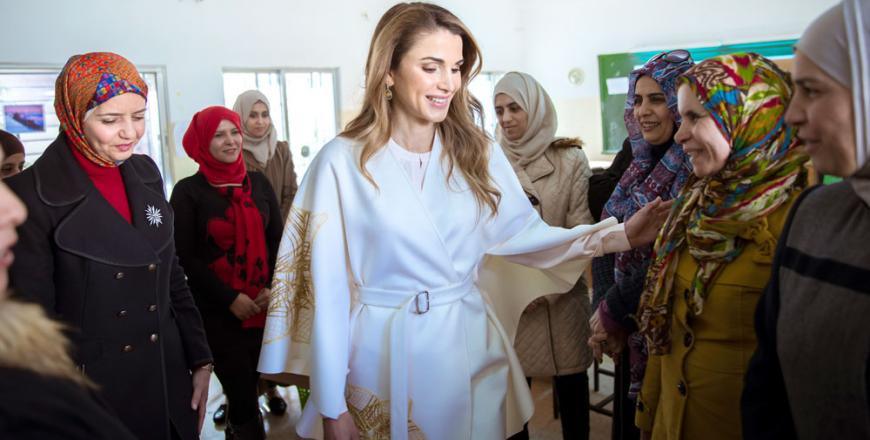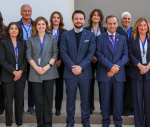You are here
Jordanian students improve performance in mathematics, science — report
By Maria Weldali - Dec 08,2020 - Last updated at Dec 08,2020
AMMAN — Jordan has shown a marked improvement in the average performance of fourth- and eighth-grade students, according to results of the 2019 Trends in International Mathematics and Science Study (TIMSS).
For the first time, the TIMSS, an international comparative study, has offered its participating countries the option to administer the test in a digital format, aiming at maintaining and preserving large-scale trends and perspectives in mathematics and science achievements in the fourth and eighth grades.
Developed and conducted by the International Association for the Evaluation of Educational Achievement (IEA), the study has shown that Jordan has ranked second among 13 countries that have shown progress in mathematics and classified third among 11 countries that exhibited progress in science, according to a ministry statement.
The statement noted that Jordan progressed three ranks in mathematics and one rank in science, as shown by the 2019 TIMSS, which was jointly launched by UNESCO and IEA on December 8.
According to the study, the average students' score in mathematics rose by 34 points, with an average increase of 26 points in science when comparing the results of this session with the 2015 TIMSS findings.
Commenting on the results, IEA Executive Director Dirk Hastedt said: “The TIMSS is of particular importance in assessing achievements towards the 2030 Education Agenda. Encouragingly, trends in mathematics and science are largely improving in fourth and eighth grades, with the majority of students achieving minimum proficiency.”
“However, there is still a certain percentage not achieving the minimum benchmark standard, and we must not forget the large score gaps that remain in many countries between top and bottom performing students, which have only been underlined by the COVID-19 pandemic this year,” Hastedt added.
According to the study, the countries where eighth-grade girls outperformed boys in science with the largest difference, were Jordan, Oman, Bahrain, Kuwait and Saudi Arabia. Jordan was also among the countries with the largest gender gap in eighth-grade mathematics, where girls outperformed boys.
“Jordan’s education system aims to prepare citizens equipped with various skills, to achieve their aspirations and meet the challenges of the future,” according to the website of the TIMSSA and PIRLS International Study Centre.
The Kingdom participated in the study with the principal aims of evaluating its curricula with reference to international benchmarks and assessing the capabilities of Jordanian students compared with their international peers, the website said.
The 2019 TIMSS marks the seventh cycle of the study, which is conducted every four years since 1995, providing 24 years of trends in global student achievement in mathematics and science.
Jordan has participated in all TIMSS cycles since 1999, according to the National Centre for Human Resources Development (NCHRD), which is the national entity that supervises the implementation of the study.
The NCHRD added that the study sample included 235 Education Ministry, private sector, military culture and UNRWA schools, as well as schools that provide education for Syrian students.
A total of 39 countries participated in the study, in addition to eight participants in the educational systems benchmarks.
The launch of the study presented highlights from the TIMSS 2019 international report and explored the progress towards the Global Education 2030 Agenda, in the context of the study's efforts to advance the Sustainable Development Goal (SDG) 4, monitoring progress and promoting appropriate national, regional and international tools for measuring learning outcomes, according to UNESCO.
Nardeen Amer, a fourth-grade mathematics teacher, told The Jordan Times on Tuesday that “the Jordanian educational curriculum is strong and is one of the best in the region, but, in some aspects, it still needs to be improved”.
When students move up to the fourth grade “they are suddenly introduced to a new curriculum, which is a very strong syllabus, but is too long and beyond the capacity of fourth graders,” Amer added.
Limar Amjad Abdulhaq, an eight grader, told The Jordan Times over the phone on Tuesday that the mathematics and science curricula are "sufficiently strong".
"We are always told that mathematics and science are very important foundations for developing intellectual skills," Abdulhaq said.
Related Articles
AMMAN — Ahmad, an eighth grade student, was roaming near the public school from where he apparently sneaked out."I hate the maths class, I d
AMMAN — Her Majesty Queen Rania on Thursday wrote on her Facebook page that the drop in maths and sciences in the global ranking of Jordania
AMMAN — Her Majesty Queen Rania on Tuesday joined a group of education professionals at a workshop on the deteriorating performance of Jorda

















